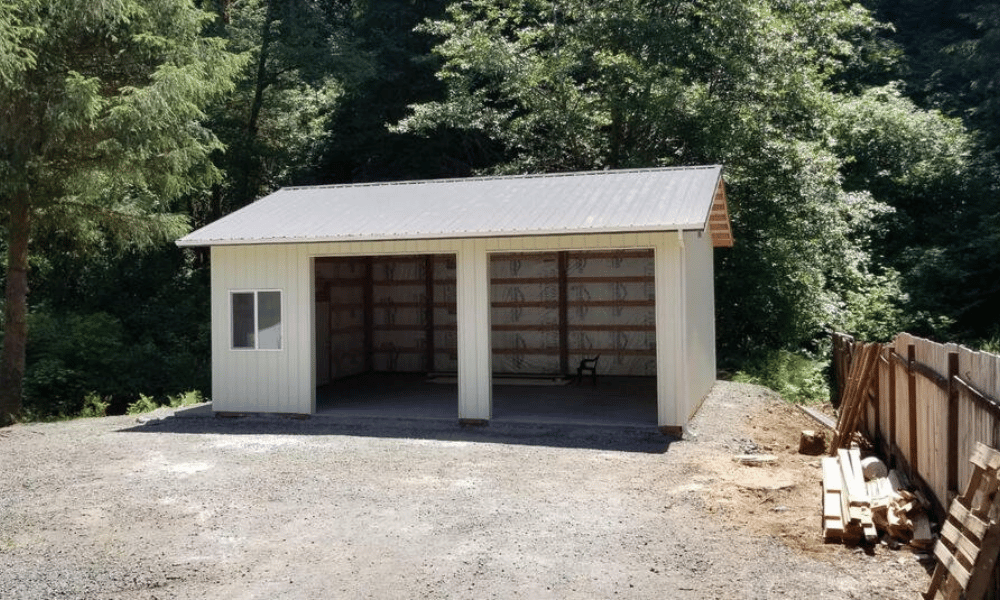Introduction
Building a Dean Lindsey Construction pole barn can be an exciting venture, but it’s no small feat. Whether you’re looking for extra storage, a workshop, or even a unique living space, understanding the ins and outs of pole barns is crucial before diving in. With their versatility and affordability, pole barns have become increasingly popular among homeowners and businesses alike. However, before you commit to this project, there are essential questions to ask that can save you time, money, and stress down the road. So, grab your notepad as we delve into these critical considerations!
Understanding Pole Barns: What Are They?
What defines a pole barn?
Pole barns are structures built using wood or metal poles anchored in the ground. Unlike traditional buildings that rely on a foundation for support, pole barns utilize vertical posts as the primary load-bearing element. This design offers remarkable flexibility in size and layout.
Why choose a pole barn over conventional construction?
For many, pole barns provide a cost-effective and efficient alternative to traditional construction methods. Their quick assembly time and customizable designs make them particularly appealing for various uses—from agricultural storage to recreational spaces.
Essential Questions to Ask Before Committing to a Pole Barn Build
1. What is my budget for building a pole barn?
Understanding your financial limitations is vital before starting any construction project. Factor in materials, labor costs, permits, and potential unforeseen expenses.
2. What will I use my pole barn for?
Clearly defining the purpose of your pole barn can help guide your design choices. Will it be used for farming equipment storage, housing animals, or perhaps serving as a workshop?
3. Where will I build my pole barn?
Location plays a significant role in your build's success. Consider zoning laws, accessibility, drainage issues, and proximity to utilities when choosing the site.
4. What size do I need?
The dimensions of your barn should reflect its intended use while accommodating future needs as well. Don’t forget to think about vertical space if you plan on storing tall items.
5. Are there local building codes or restrictions?
Every jurisdiction has its own set of regulations regarding construction projects. Ensure you're compliant with local codes by checking with city or county officials before breaking ground.
6. Who will I hire for the build?
Whether you’re going DIY or hiring professionals, selecting the right team is crucial for quality workmanship and timely completion.
The Importance of Planning Your Pole Barn
Why is planning crucial?
Planning helps streamline the construction process by ensuring that every detail is accounted for ahead of time—from blueprints to materials needed.
What tools can assist in planning?
Utilizing software designed for structural planning can simplify visualization and help highlight potential issues early on.

Material Choices: What Should I Consider?
Wood vs Metal: Which is better?
Both materials have their pros and cons:
- Wood: Offers aesthetic appeal but may require more maintenance. Metal: More durable against pests and rot but can be costlier initially.
Are there eco-friendly material options available?
Sustainability is becoming increasingly important; consider reclaimed wood or sustainable lumber sources if you're environmentally conscious.
Design Considerations: Functionality vs Aesthetics
How much natural light should I include?
Incorporating windows or skylights can make your space feel more inviting while reducing energy costs in the long run.
What about insulation?
If you plan on using your barn year-round or for sensitive items like livestock feed or machinery, proper insulation becomes essential.
Permits & Regulations: Navigating Local Laws
What kind of permits will I need?
Typically, you'll need building permits along with inspections during various construction phases—check with local authorities for specifics.
Are there any fees associated with these permits?
Permit fees vary widely depending on location; budgeting for these expenses helps avoid surprises later on.
Hiring Contractors vs DIY: What's Best For You?
Should I hire professionals or go DIY?
This decision often hinges on your skill level and comfort with construction projects:
- If you're handy and have experience—DIY could save you money. Hiring professionals ensures quality but comes at an additional cost.
Post-Build Considerations: Maintenance & Longevity
What ongoing maintenance will my pole barn require?
Regular inspections should include checking roofing integrity, pest control measures, and general wear-and-tear repairs.
How long can I expect my pole barn to last?
With proper care—ranging from 30 years up to several decades—pole barns are known for their durability!
FAQs About Building Pole Barns
1. How much does it typically cost to build a pole barn?
Costs range widely based on size and materials but can start at around $10-$20 per square foot.
2. Can I finance my pole barn construction?
Yes! Many lenders offer financing options specifically tailored for agricultural buildings like pole Click here! barns.
3. Is it necessary to pour concrete footings?
While not always required depending on soil type and building codes, pouring concrete footings provides stability against shifting over time.
4. Can I customize my pole barn design?
Absolutely! Customization options abound—from colors to layouts—allowing you to create a space that fits your specific needs perfectly!
5. Will my insurance cover the new structure?
Check with your insurance provider beforehand; coverage varies widely based on location and intended use of your structure.
6. How long will it take to build my pole barn?
Construction times depend on complexity but typically range from weeks to months depending on factors such as weather conditions and contractor availability.
Conclusion: Making Your Decision Count
Constructing a pole barn isn’t just about erecting walls; it's about creating an environment conducive to whatever purpose you envision—be it work-related or personal leisure! By asking essential questions before committing yourself financially—and emotionally—to this undertaking allows you not only clarity but peace of mind throughout each phase leading up until completion!
So go ahead—give those questions some serious thought! The more prepared you are now means less hassle later down the line when all systems are go! After all—it’s not merely about building something; it’s about building your dream space!